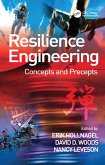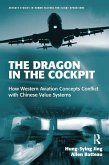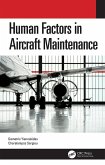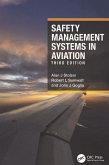Dieser Download kann aus rechtlichen Gründen nur mit Rechnungsadresse in A, B, BG, CY, CZ, D, DK, EW, E, FIN, F, GR, HR, H, IRL, I, LT, L, LR, M, NL, PL, P, R, S, SLO, SK ausgeliefert werden.
Overall, this is a very good introductory text to the field and one I would recommend to those engaging in academic studies in the field or who want a starting point to explore human factors research across a range of areas."
-Aerospace June 2019 Issue
"This unique and highly practical book should be the primary reference for students of aviation psychology seeking to gain an understanding of the principles and techniques of psychology applied to aviation. It will also be of interest to pilots and others who work professionally in aviation to gain insight into how much in modern psychology is applied to support safe flight operations. The new sections on aviation physiology and abilities and personality are excellent and further enhance the readability and usefulness of this text. The authors are leading figures in this field have presented a fascinating and highly readable textbook."
-Robert Bor, Centre for Aviation Psychology, London, UK
"A new way of looking at the subjects of aviation psychology and human factors, this approach will be very useful in aviation psychology training especially for non-psychologists. The book gives a comprehensive coverage of all topics in the field. It has been written in an easy to understand manner and will certainly useful for pilots who want to understand more on the subject. Overall a must have book for aviation psychologists (to understand how psychology is applied in aviation) and human factors specialists (to understand basic psychological principles, processes and models in aviation)."
- Catherine S. George, Retired from the Defense Research & Development Organization and the Institute of Aerospace Medicine (IAM) Indian Air Force (IAF), India
"The introduction gives an excellent overview of aviation psychology and presents its key models and constructs. Basic concepts, research methods and statistics are clearly explained, and vividly illustrated with practical examples from the aviation domain. A must read for aviation professionals for understanding the human part of the fascinating aviation system. Very well researched and enjoyable to read, this is the reference book for academic teaching and practical instruction in aviation psychology and human factors, as it addresses all basic concepts and current topics."
- Ioana Koglbauer, Graz University of Technology, Austria
"The book is a very thorough and up to date as can be introduction to aviation psychology and human factors, their benefits and practical implications, and a very enjoyable read at the same time. As the overall goal of the book is to make pilots and other students of aviation aware of psychology and human factors, to provide them useful information to apply in their daily work, and to make them informed consumers of future psychological research and studies, this book may serve as a very effective tool to that end."
- André Droog, European Association for Aviation Psychology, President









